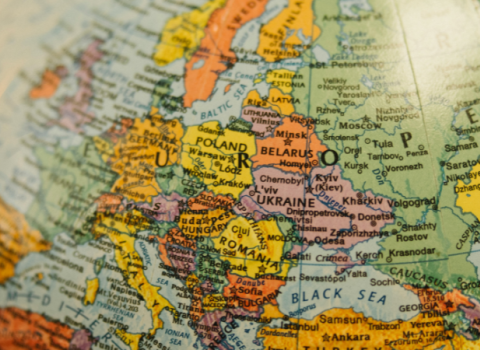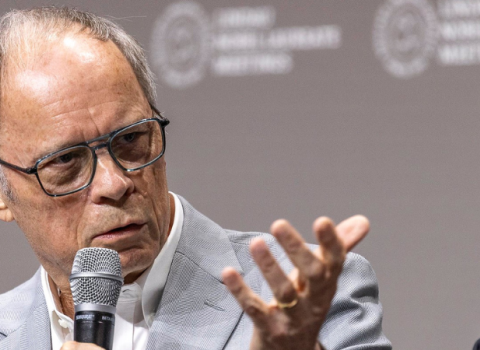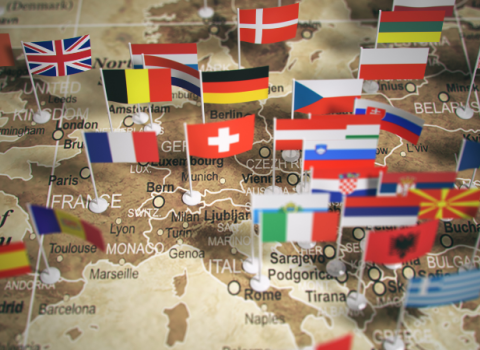The European Investment Bank (EIB) and the Global Center on Adaptation (GCA) today announced their plan to engage in a collaboration to accelerate action on climate change adaptation.
The partnership recognizes the urgent need to mobilize action in regions of the world that are particularly vulnerable to the impacts of climate change, such as the African continent, where the EIB and GCA aim to collaborate on the Africa Adaptation Acceleration Programme (AAAP), an initiative developed by the African Development Bank (AfDB) and GCA to scale up adaptation action in Africa by mobilizing USD 25 billion.
The EIB and GCA have identified various focus areas of collaboration: Financing adaptation solutions, supporting knowledge, tools and capacity-building on adaptation and sharing best practices and data.
The two organizations foresee working closely with the AfDB and other multilateral development banks, as well as international financial institutions, aiming to provide financing for projects that fall under the AAAP’s pillars, which include infrastructure resilience, youth empowerment through jobs and entrepreneurship and climate smart digital technologies for agriculture and food security.
Another expected outcome of the EIB-GCA partnership is to identify and support opportunities and projects that could significantly contribute to climate adaptation around the world, particularly in Least Developed Countries, Small Island Developing States, and in the regions of EIB operations.
“Working alongside the European Investment Bank on our common goal of accelerating global climate adaptation action represents an outstanding opportunity to combine our resources to safeguard our planet and future generations against the impacts of climate change,” said Professor Patrick Verkooijen, CEO of GCA.
EIB President Werner Hoyer commented: “We are delighted to strengthen our cooperation with the Global Center on Adaptation to accelerate adaptation action in the most climate vulnerable regions of the world. The collaboration will bring together our complementary strengths, with the EIB as one of the world’s largest multilateral financiers of climate action and the GCA as a solutions broker for adaptation.”
The EIB and GCA announced their proposed partnership during the High-Level Dialogue on “An Adaptation Acceleration Imperative for COP26” with global leaders gathered at GCA headquarters in Rotterdam ahead of COP26, which included EIB President Werner Hoyer.
Background information
About the Global Center on Adaptation
The Global Center on Adaptation (GCA) is an international organization which works as a solutions broker to accelerate action and support for adaptation solutions, from the international to the local, in partnership with the public and private sector, to ensure we learn from each other and work together for a climate resilient future. Founded in 2018, GCA is hosted by the Netherlands, working from its headquarters in Rotterdam with a knowledge and research hub based in Groningen. GCA has a worldwide network of regional offices in Abidjan, Ivory Coast; Dhaka, Bangladesh and Beijing, China. Through this evolving network of offices and global and regional GCA teams, the organization engages in high-level policy activities, new research contributions, communications, and technical assistance to governments and the private sector.
About the European Investment Bank
The European Investment Bank is active in around 160 countries and is the world’s largest multilateral lender for climate action projects. The EIB Group has recently adopted its Climate Bank Roadmap to deliver on its ambitious agenda to support EUR 1 trillion of climate action and environmental sustainability investments in the decade to 2030 and to deliver more than 50% of EIB finance for climate action and environmental sustainability by 2025. Also, as part of the Roadmap, from the start of 2021, all new EIB Group operations will be aligned with the goals and principles of the Paris Agreement.
This article was first published on September 6 by the European Investment Bank.





 A unique international forum for public research organisations and companies to connect their external engagement with strategic interests around their R&D system.
A unique international forum for public research organisations and companies to connect their external engagement with strategic interests around their R&D system.